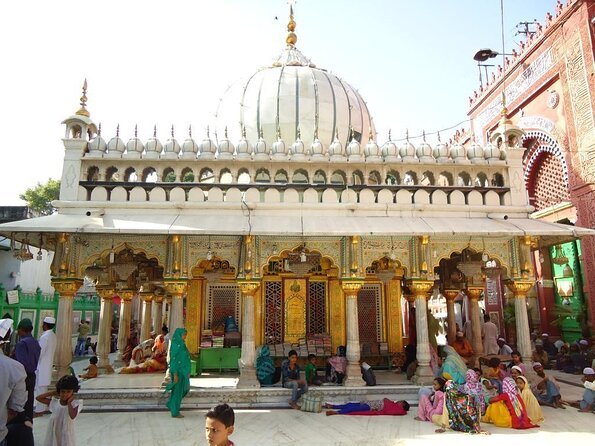Hazrat Nizamuddin Auliya (1238–1325), one of the most revered Sufi saints of
India, was a prominent figure of the Chishti Order. He lived during the Delhi Sultanate
period, contributing significantly to the spread of Sufism in the Indian Subcontinent.
His teachings emphasized love, kindness, and service to humanity, transcending religious and social
divides.
Early Life and Background:
Birth and Early Life:
Born as
Muhammad Nizamuddin in
Badayun, Uttar Pradesh, in 1238 CE, he lost his
father at a young age. His mother,
Bibi Zulaikha, played a crucial role in nurturing his spiritual
inclination.
Education:
He moved to
Delhi at a young age to pursue Islamic education. He studied Quran, Hadith (sayings
of the Prophet), Fiqh (Islamic jurisprudence), and Sufism.
His quest for spiritual enlightenment led him to become a disciple of
Baba Fariduddin
Ganjshakar (also known as Baba Farid), a leading Sufi master of the Chishti Order.
Spiritual Teachings and Philosophy:
Sufi Ideals:
Hazrat Nizamuddin Auliya believed in the Chishti principles of love for all and malice
towards none. He preached the message of universal brotherhood, compassion, and selflessness.
Love and Service:
He emphasized the importance of serving humanity as a way to reach divine love. His famous saying,
"Love All and Hate None," reflects his vision of a society built on mutual respect and
understanding.
Focus on the Poor:
He was known for his care for the underprivileged and advocated that spirituality must translate into acts
of kindness and service to the poor. He rejected materialism, teaching that true wealth lay in spiritual
fulfillment.
Influence and Legacy:
Cultural Impact:
His shrine in
Nizamuddin Basti, Delhi, became a center for cultural exchange, music, poetry,
and spiritual gatherings. It fostered a spirit of inclusivity and acceptance among followers from different
backgrounds.
Prominent Disciples:
He mentored several disciples, the most notable being Amir Khusro, a celebrated poet, scholar, and
musician. Khusro’s poetry and qawwali (Sufi devotional music) became integral to the cultural and spiritual life
around the dargah.
Qawwali Tradition:
Hazrat Nizamuddin Auliya is closely associated with the qawwali tradition, which emerged as a
form of spiritual expression in his gatherings.
Qawwalis, filled with poetry praising the divine and the teachings of saints, remain a key feature at his dargah
to this day.
Dargah (Shrine) of Hazrat Nizamuddin Auliya:
Location and Structure:
The Dargah of
Hazrat Nizamuddin Auliya is situated in the Nizamuddin West area of Delhi. It
is a revered site that attracts devotees from various walks of life, irrespective of religion.
Urs Celebration:
His
Urs (death anniversary) is observed with great devotion, featuring qawwali sessions, charity,
and prayers. It serves as a time for reflection on his life and teachings.
Spiritual Hub:
The dargah is a symbol of Sufi heritage in
India, known for its spiritual ambiance. It continues to
be a space where people seek solace, blessings, and spiritual connection.
Hazrat Nizamuddin's Role in Delhi's Society:
Social Reformer:
Through his teachings and personal example, Hazrat Nizamuddin sought to break down social hierarchies and
barriers. He rejected the pomp and power of rulers and chose a simple life dedicated to prayer and community
service.
Sufi vs. Royalty:
He maintained a distance from the courts of the Delhi Sultans, focusing instead on the welfare of the
common people.
His message stood as a critique of the materialism and injustices of the time, advocating for a society centered
on spirituality and human dignity.
Conclusion:
Hazrat Nizamuddin Auliya is celebrated as a saint who brought together the spiritual and social
dimensions of Islam in a way that deeply resonated with the
people of India.
His teachings of love, compassion, and inclusivity have left a lasting impact on the cultural and spiritual
fabric of the subcontinent.
The Dargah continues to be a living legacy of his mission, embodying the
Chishti Sufi values of
peace, love, and devotion.



